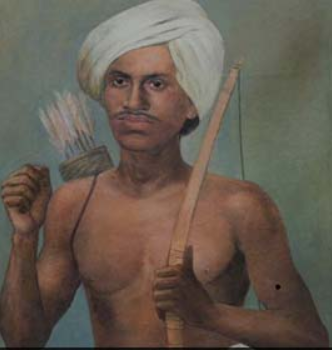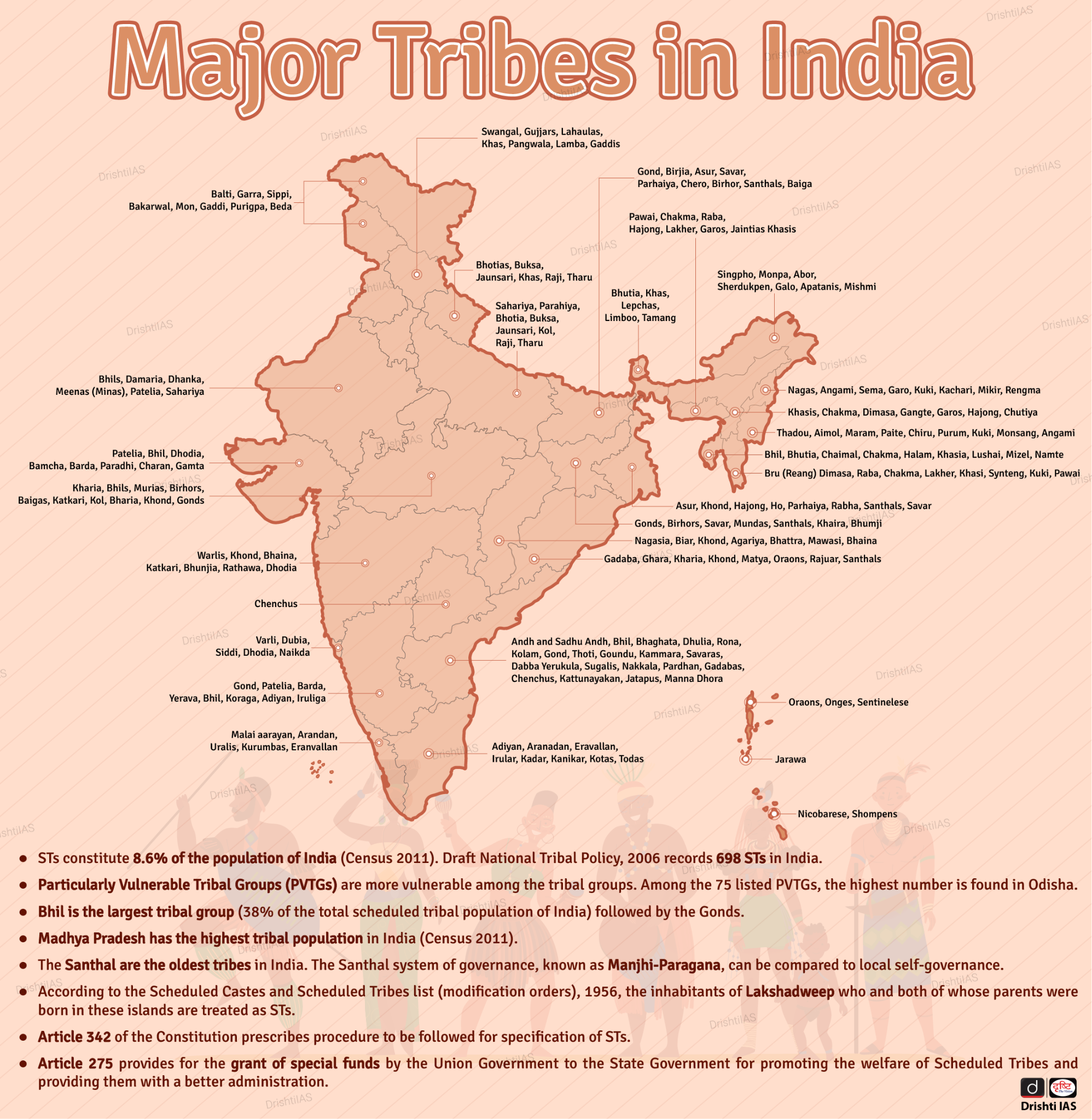Jharkhand
Janjatiya Gaurav Divas 2024
- 15 Nov 2024
- 3 min read
Why in News?
Recently, The Prime Minister paid tributes to Bhagwan Birsa Munda on his birth anniversary, commemorated as Janjatiya Gaurav Divas (15th November).
Key Points
- About Janjatiya Gaurav Divas:
- It is celebrated every year to recognize the efforts of the tribals in the preservation of cultural heritage and promotion of Indian values of national pride, valour, and hospitality.
- Tribals held several tribal movements across different regions of India against the British colonial rule. These tribal communities include Tamars, Santhals, Khasis, Bhils, Mizos, and Kols to name a few.
- Birsa Munda:
- Birsa Munda born on 15th November 1875 was a member of the Munda Tribe of the Chhota Nagpur Plateau.
- He was an Indian freedom fighter, religious leader, and folk hero.
- He spearheaded an Indian tribal religious Millenarian movement during British rule in the late 19th century across the tribal belt of modern-day Jharkhand and Bihar.
- Birsa was a close observer of the Sardari Larai movement in the region in the 1880s, which sought to restore tribal rights through nonviolent means such as petitioning the British government. These demands, however, were ignored by the harsh colonial authority.
- The tribals were quickly demoted from landowners to labourers under the zamindari system, which resulted in Birsa taking up the cause of the Adivasis.
- Birsa Munda went on to form Birsait, a new religion.
- The religion preached the belief in a single God and urged people to return to their old religious convictions. People began to refer to him as a cost-effective religious healer, a miracle worker, and a preacher.
- People from Oraon and Munda became convinced Birsaites, and many began calling him 'Dharti Abba, meaning Father of the Earth.' He brought a fresh perspective to the religious realm.
- Birsa Munda led the rebellion that came to be known as Ulgulan (revolt) or the Munda rebellion against the British government-imposed feudal state system.
- He awakened the masses and sowed the seeds of revolt in them against the landlords as well as the Britishers.
- His struggle against the exploitation and discrimination against tribals led to the passing of the Chotanagpur Tenancy Act in 1908 which restricted the passing of land from the tribal people to non-tribals.






